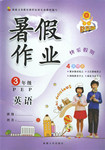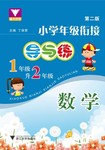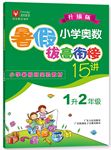题目内容
8.Taking good notes is a time-saving skill that will help you to become a better student in several ways.(16)GSecond,your notes are excellent materials to refer to when you are studying for a test.Third,note-taking offers variety to your study time and helps you to hold your interest.You will want to take notes during classroom discussions and while reading a textbook or doing research for a report.(17)EWhenever or however you take notes,keep in mind that note-taking is a selective process.(18)F
The following methods may work best for you.
•Read the text quickly to find the main facts and ideas in it.
•Carefully read the text and watch for words that can show main points and supporting facts.
•Write your notes in your own words.
•(19)A
•Note any questions or ideas you may have about what was said or written.
As you take notes,you may want to use your own shorthand.When you do,be sure that you understand your symbols and that you use them all the time.(20)D
A.Use words not complete sentences.
B.There are three practical note-taking methods.
C.You must write your notes on separate paper.
D.Otherwise,you may not be able to read your notes later.
E.You will also want to develop your own method for taking notes.
F.That means you must first decide what is important enough to include in your notes.
G.First,the simple act of writing something down makes it easier for you to understand and remember it.
分析 本文主要介绍了在使你成为一名好学生的多种途径中,记好笔记是一种节省时间的能力.首先,简单地写下某些东西能够使你更容易理解和记忆;其次,你的笔记是你在准备测试时最好的学习资料;第三,笔记为你的学习时间提供了多样化的学习方法,而且可以提高你的学习兴趣.
解答 16-20 GEFAD
16.G文章衔接题.根据下一句second,说明G正确,G是第一点,接下来的是第二点.故选G.
17.E上下文串联.根据前文You will want to take notes during classroom discussions and while reading a textbook or doing research for a report.可知你将在课堂讨论和阅读教科书或为报告做研究时记笔记;根据后文Whenever or however you take notes,keep in mind that note-taking is a selective(精挑细选的) process.无论何时或者无论你怎样做笔记,要记住做笔记是一种精挑细选的过程.可知这里想说你可能想形成记笔记的自己的方法,故选E.
18.F联系上文题.根据上文Whenever or however you take notes,keep in mind that note-taking is a selective(精挑细选的) process.可知无论何时或者无论你怎样做笔记,要记住做笔记是一种精挑细选的过程.这里想说那就意味着你必须首先决定在你的笔记中,要包括些什么重要内容,故选F.
19.A联系下文题.根据As you take notes,you may want to use your own shorthand(速记).When you do,be sure that you understand your symbols and that you use them all the time.可知这里想说用词,不用完整的句子.前后三行都是记录过程中的技巧,A项:Use words,not complete sentences.只记录单词,不记录句子.故选A.
20.D联系上文题.根据上一句你要理解你一直使用的那些符号.D项:Otherwise(否则),you may not be able to read your notes later.要不然后来你可能就不能阅读自己的笔记了.符合文意,故选D.
点评 选句填空的做题方法是:1)从意思上判断 在做题时最重要的是要读懂空白前后的句子,正确理解了这些句子后,根据意思的连贯性、逻辑性或者线索词从选项中选取正确答案.在读懂意思的基础上,再利用线索特征词等进一步确认答案.
2)从词汇上锁定线索 做保持对一些线索词的敏感是非常重要的,要好好关注空白前后的名词和动词,然后在选项中查找它们的近义词、反义词、同义词、同类词等.其次是一些专有名词,比如说数词、代词、时间、年代、地点/名称等.尤其是在读不懂句子的情况下,利用这样的线索词寻找答案是很有效的方法.
3)从关联词作为切入点 通常,英语的句段之间经常会运用关联词表示过渡和衔接,让文章的思路与更清楚、逻辑更连贯,因此文章中和选项中表示各种逻辑关系的路标性信号词在选择答案时都是很重要的线索.在做题时可将这三个层面的线索很好地结合起来.例如,在看到表示并列或递进关系的关联词时,一般表示前后句子的名词或句意具有同指性;而表示转折让步关系的词则往往表示前后句子的名词同指,但句意对立,或褒贬对立或肯否对立;而表示例证关系的词则意味着在举例之前或之后有表述概念或某一观点的句子,往往会有复数名词出现.

 学练快车道快乐假期暑假作业新疆人民出版社系列答案
学练快车道快乐假期暑假作业新疆人民出版社系列答案 浙大优学小学年级衔接导与练浙江大学出版社系列答案
浙大优学小学年级衔接导与练浙江大学出版社系列答案 小学暑假作业东南大学出版社系列答案
小学暑假作业东南大学出版社系列答案 津桥教育暑假拔高衔接广东人民出版社系列答案
津桥教育暑假拔高衔接广东人民出版社系列答案 波波熊暑假作业江西人民出版社系列答案
波波熊暑假作业江西人民出版社系列答案